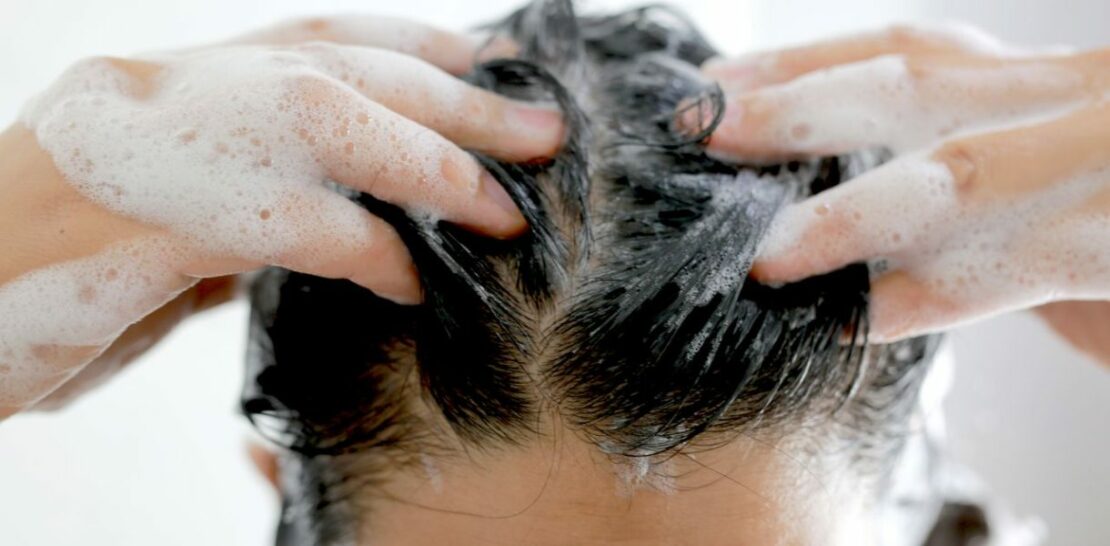Washing your hair is a fundamental part of personal hygiene, but there is an ongoing debate about how frequently it should be done.
Our hair is our crowning glory, and as a specialist in the English language, I am here to provide an exhaustive analysis on the topic: How many times a week should I wash my hair?
This comprehensive article will delve into factors affecting hair-washing frequency, the science behind hair and scalp health, and how to find the perfect balance for your unique hair type.
A Personal Approach: Factors Affecting Hair-Washing Frequency
Before we dive into the specifics, it’s important to acknowledge that the ideal hair-washing frequency varies from person to person. There are several factors that contribute to this variation, which can be grouped into four main categories:
- Individual hair type: The texture, thickness, and oiliness of your hair will greatly influence how often it needs to be washed. For example, fine hair gets oily faster than thick hair and may need more frequent washing.
- Lifestyle and habits: Your daily activities, such as exercise, exposure to pollutants, and the use of styling products, play a role in determining the frequency of hair washing. Active individuals or those who live in polluted areas may need to wash their hair more often to maintain cleanliness and freshness.
- Scalp health: The condition of your scalp can impact how often you should wash your hair. People with dry, itchy, or flaky scalps may benefit from less frequent washing, while those with oily scalps may need to wash more frequently to prevent buildup.
- Personal preference: Ultimately, the decision of how often to wash your hair comes down to personal preference and what feels best for you. Some individuals prefer the feeling of freshly washed hair, while others may be content with washing less frequently.
The Science of Hair and Scalp Health: Why Over-Washing Can Be Damaging
Understanding the science behind hair and scalp health is crucial when determining the optimal hair-washing frequency. One key aspect to consider is the role of sebum, a natural oil produced by the sebaceous glands in the scalp. Sebum plays a vital role in maintaining healthy hair and scalp, providing natural moisture, lubrication, and protection. However, excessive sebum production can lead to greasy hair and scalp issues.
Over-washing your hair can strip away the natural oils, leading to an imbalance in sebum production. This may cause the sebaceous glands to produce even more oil to compensate for the loss, resulting in a vicious cycle of greasy hair and frequent washing. In contrast, under-washing can cause sebum buildup, leading to an oily scalp, clogged hair follicles, and potential hair loss. Therefore, finding the right balance is crucial for maintaining healthy hair and scalp.
Striking the Perfect Balance: A Guide to Determining Your Ideal Hair-Washing Frequency
Now that we have explored the factors affecting hair-washing frequency and the science behind hair and scalp health, it’s time to provide a guide to help you determine the perfect balance for your unique hair type. There is no one-size-fits-all answer, but this step-by-step process will allow you to evaluate your individual needs and make an informed decision:
- Assess your hair type: As mentioned earlier, the texture, thickness, and oiliness of your hair play a significant role in determining how often you should wash it. Fine, oily hair may require daily washing, while thick, dry hair may only need to be washed once or twice a week. Curly and coily hair types often benefit from less frequent washing, as their natural oils take longer to travel down the hair shaft.
- Consider your lifestyle and habits: Reflect on your daily activities and how they may impact your hair. If you exercise regularly, work in a dusty or polluted environment, or use a lot of styling products, you may need to wash your hair more often to keep it clean and fresh.
- Pay attention to your scalp: Evaluate the condition of your scalp, and adjust your hair-washing frequency accordingly. If your scalp is prone to dryness and flakiness, try washing your hair less frequently and using a gentle, moisturizing shampoo. On the other hand, if you have an oily scalp, you may need to wash your hair more often to prevent buildup andmaintain balance.
- Experiment and adjust: Finding the perfect hair-washing frequency for your unique hair type may require some trial and error. Start by establishing a baseline frequency based on your hair type, lifestyle, and scalp health, and then adjust as needed. Pay attention to how your hair and scalp feel and respond, and be prepared to modify your routine as necessary.
Additional Tips for Maintaining Healthy Hair and Scalp
Beyond determining the optimal hair-washing frequency, there are other important aspects to consider when striving for healthy hair and scalp. Here are some additional tips to help you maintain the perfect balance:
- Choose the right shampoo and conditioner: Select products specifically formulated for your hair type and concerns. Look for gentle, sulfate-free shampoos that won’t strip away natural oils, and choose a conditioner that provides the appropriate level of moisture and nourishment for your hair.
- Be mindful of water temperature: Washing your hair with excessively hot water can be damaging and cause dryness, frizz, and breakage. Instead, opt for lukewarm water, which is gentler on both your hair and scalp.
- Focus on the scalp: When shampooing, concentrate on massaging the product into your scalp rather than scrubbing your hair. This will help remove dirt, oil, and buildup without causing unnecessary friction and damage to the hair shaft.
- Be gentle when drying: Avoid roughly towel-drying your hair, as this can cause breakage and frizz. Instead, gently squeeze out excess water and consider using a microfiber towel or an old t-shirt to absorb moisture without causing damage.
- Consider incorporating a hair mask or treatment: Depending on your hair type and concerns, incorporating a hair mask or treatment into your routine can provide additional moisture, nourishment, and protection. This can be especially beneficial for those with dry, damaged, or color-treated hair.
In conclusion, there is no definitive answer to the question of how many times a week one should wash their hair, as it is largely dependent on individual factors such as hair type, lifestyle, scalp health, and personal preference. By understanding the science behind hair and scalp health, and considering the various factors that influence hair-washing frequency, you can establish a personalized routine that promotes healthy, balanced hair and scalp. Remember that finding the perfect balance may require some experimentation and adjustment, so be patient and attentive to your hair’s needs as you embark on this journey towards a tailored hair care regimen. Happy washing!




